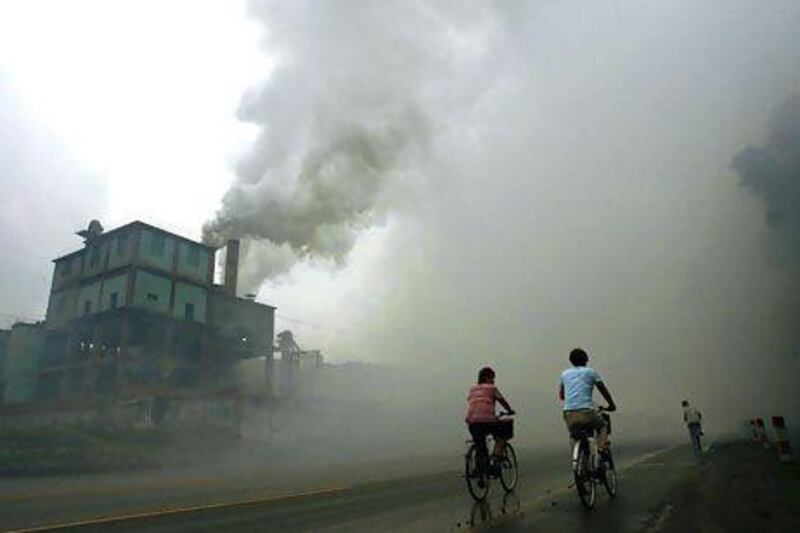Whitney Foard Small loved China and her job as a regional director of communications for a top car maker. But after air pollution led to several stays in hospital and finally a written warning from her doctor telling her she needed to leave, Ms Small packed up and left for Thailand.
In doing so, the Ford Motor executive became another expatriate to leave China because of the country's notoriously bad air. Other top executives whose careers would be boosted by a stint in the world's second-largest economy and most populous consumer market are put off when considering the move.
There is no official data on the numbers leaving because of pollution, but executive recruitment consultants say they are noticing that it is becoming harder to attract top talent to China - both expats and Chinese nationals educated abroad.
If the polluted skies continue, companies may have to fork out more for salaries or settle for less qualified candidates. Failure to attract the best talent to crucial roles could result in missed commercial opportunities and other missteps.
China's rapid economic development over the past three decades has lifted hundreds of millions out of poverty but also ravaged the environment as heavy industry burgeoned, electricity demand soared and car ownership became a badge of status for the newly affluent in big cities.
Foreigners regularly check the air quality readings put out by the US Embassy and consulates on their Twitter feeds when deciding whether to go out for a run or let their children play outside.
The pollution has become more of a hot topic since January, when readings in Beijing went off the scale beyond what is considered hazardous by the US environmental protection agency. On the worst days, skyscrapers disappeared into the capital's murky skyline as masks multiplied on the streets and sold out at convenience stores.
"January was probably the worst," says Andrew Moffatt, an Australian who worked for nine months in Beijing as regional manager for a chain of language schools before the pollution pushed him to return to Brisbane in March with his wife and five-year-old son.
"Back in November I had been sick and then we went on holiday to the beach in Hainan and it just reminded me of Australia. I just thought we could be breathing this quality air every single day, rather than polluted air in Beijing."
And it is not only Beijing where the air pollution is driving expats away.
Ford transferred its regional headquarters from Bangkok to Shanghai in 2009. Four months after the move, Ms Small, the director of communications, had her first major asthma attack.
"I had never had asthma in my life," says Ms Small, who quit the country in May last year. Her asthma, which is exacerbated by an allergy to coal - the source of about 70 per cent of China's energy - was first identified in 2005 after a six-week assignment in Beijing ended with her being hospitalised in Hong Kong with her lung function at about 30 per cent.
In Shanghai, the asthma resurfaced. "Three hospitalisations later, my doctor said it was time to call it quits," she says.
Her frequent treatments - involving inhalers, steroids and a nebuliser in the mornings and evenings to get medication deep into her lungs - meant the medication became less effective.
"I actually got a written warning from my pulmonary doctor and it said you need to reconsider for your life's sake what you're doing and so that was it. I didn't really have a choice, my doctor made it for me."
Ivo Hahn, the chief executive of the China office of the executive search consultants Stanton Chase, said that in the past six months, air pollution had become an issue for candidates they approach.
"It pops up increasingly that people say 'well, we don't want to move to Beijing' or 'I can't convince my family to move to Beijing'," he says.
Mr Hahn thinks this trend will only strengthen over the next one or two years because the highest-level executives generally "are not working primarily for their survival".
He adds: "They normally get a decent pay, they are generally reasonably well taken care of, so the quality of life actually it does matter, particularly when they have children."





